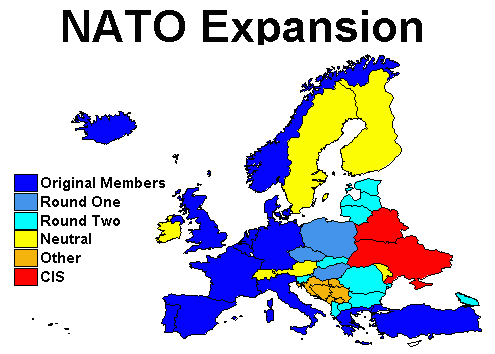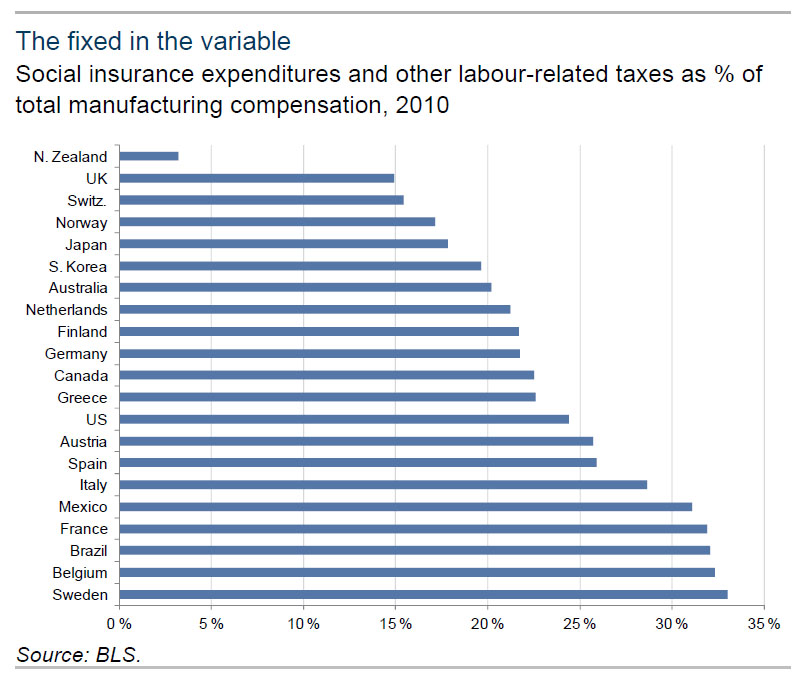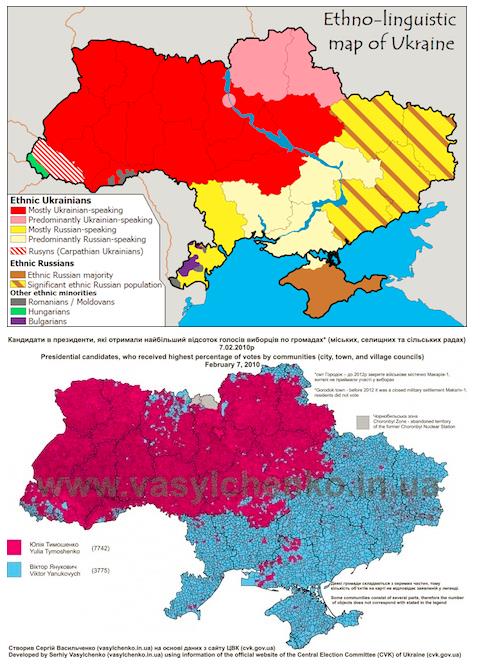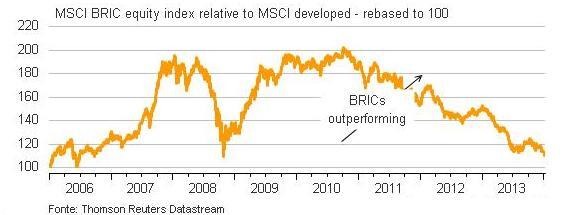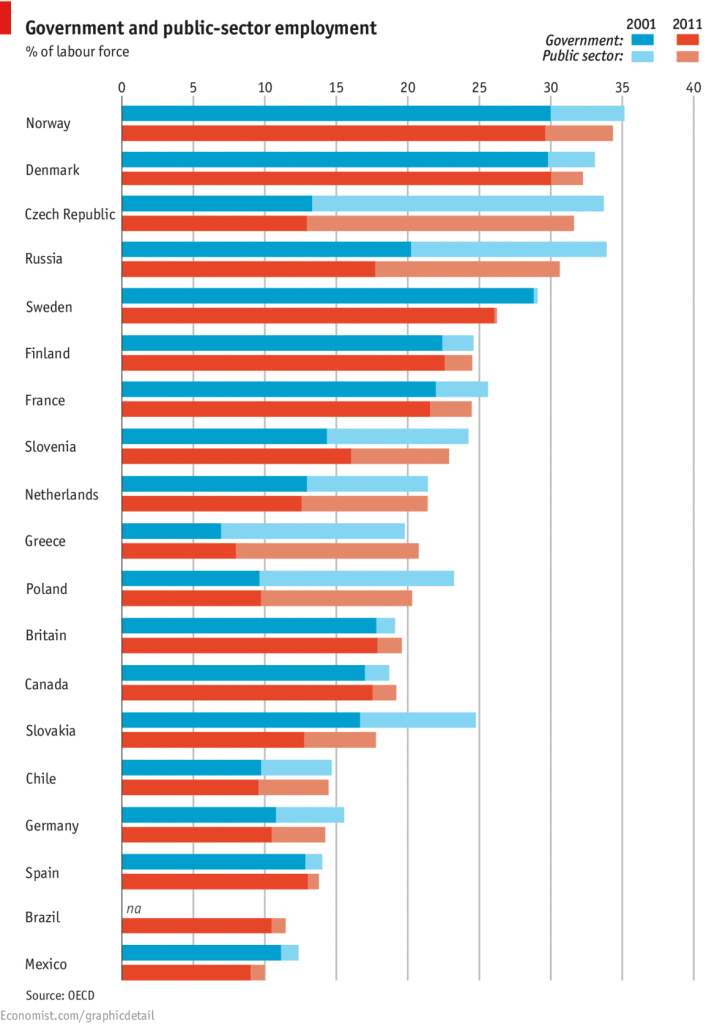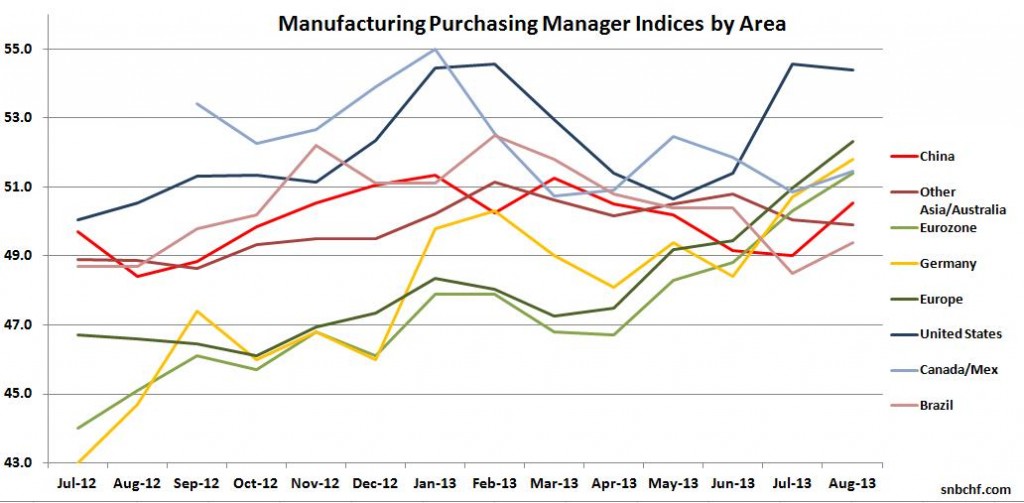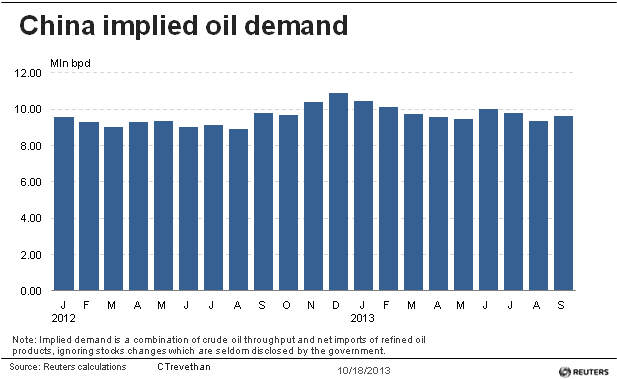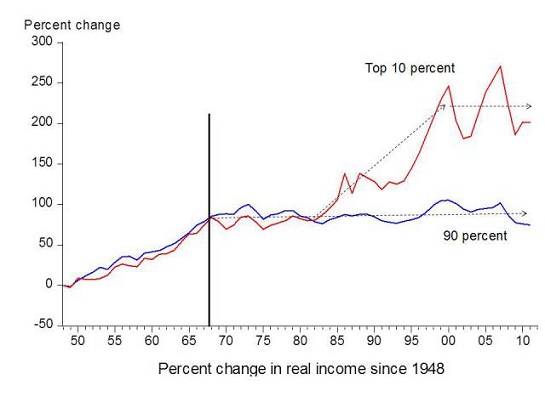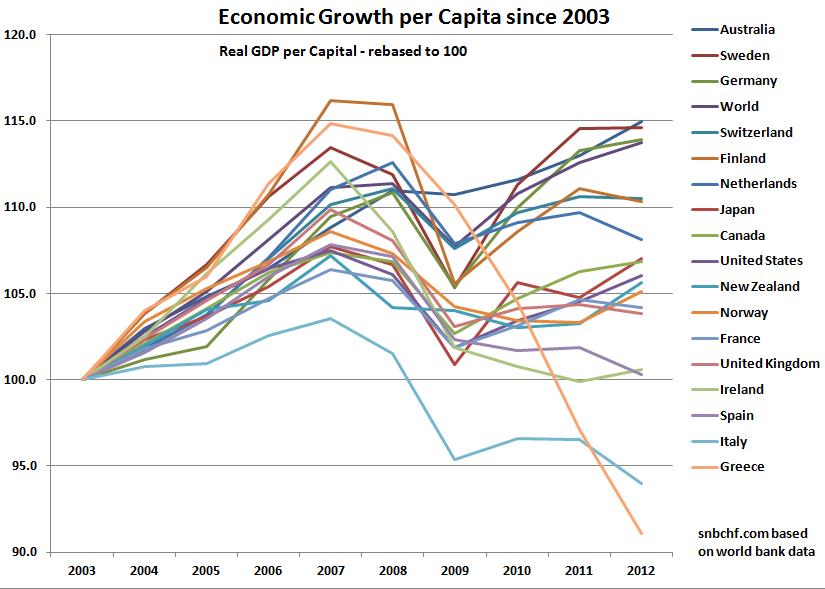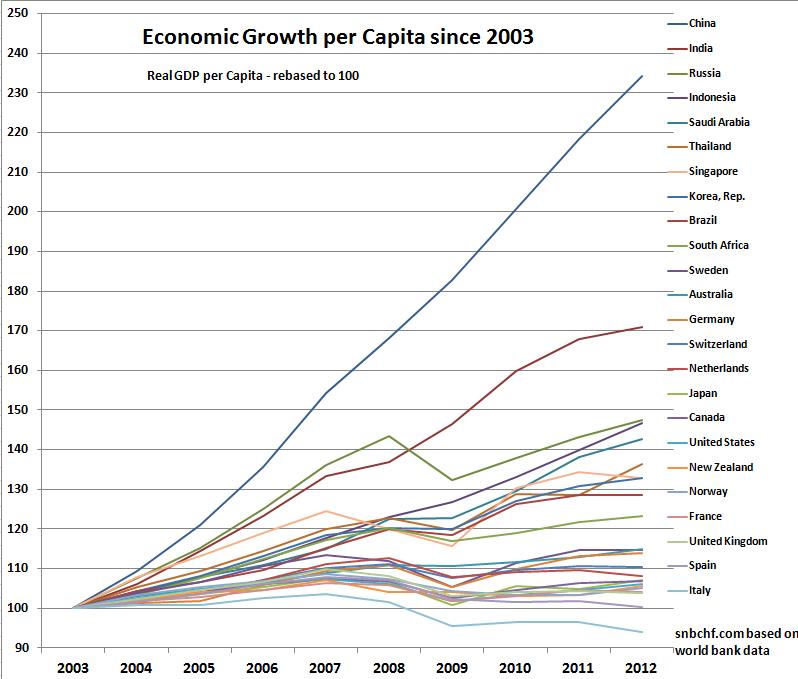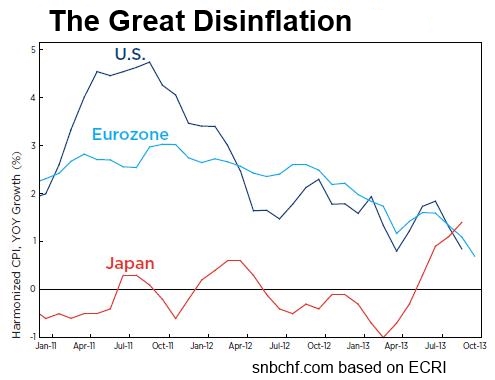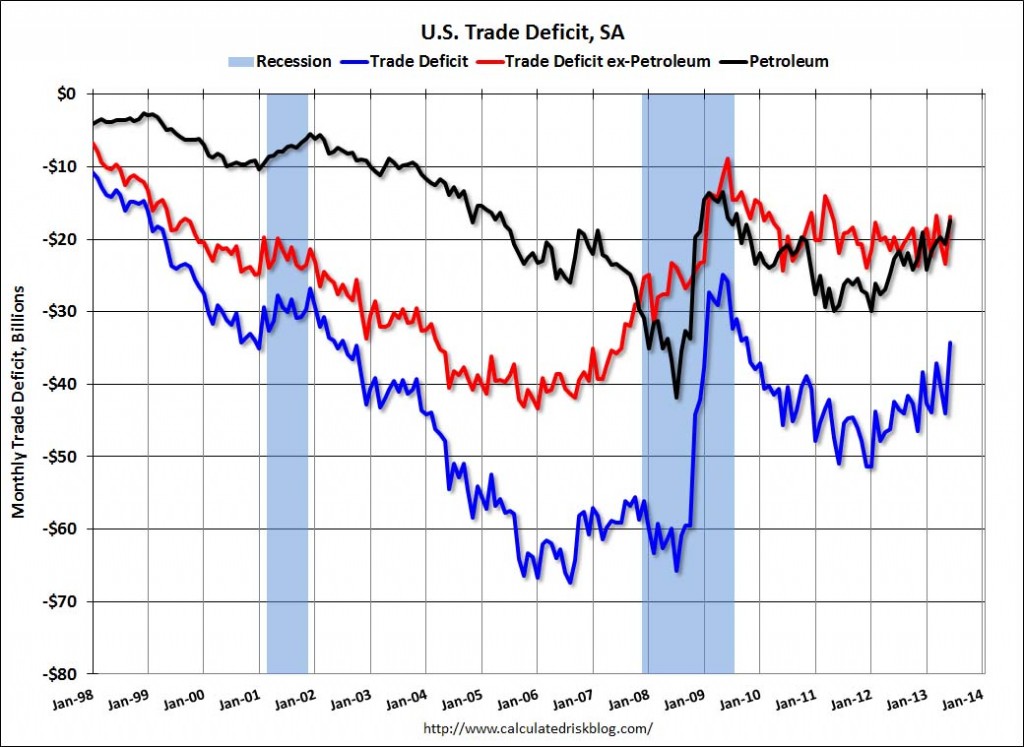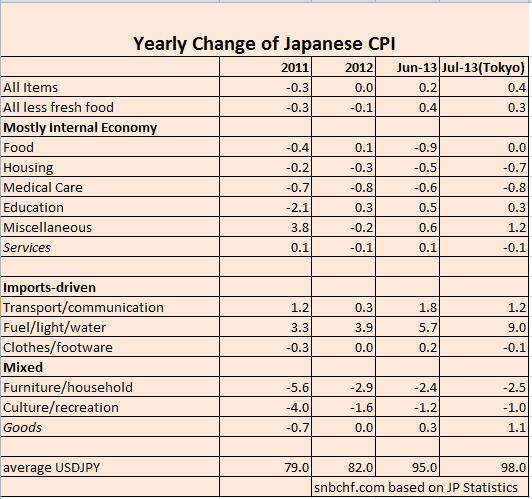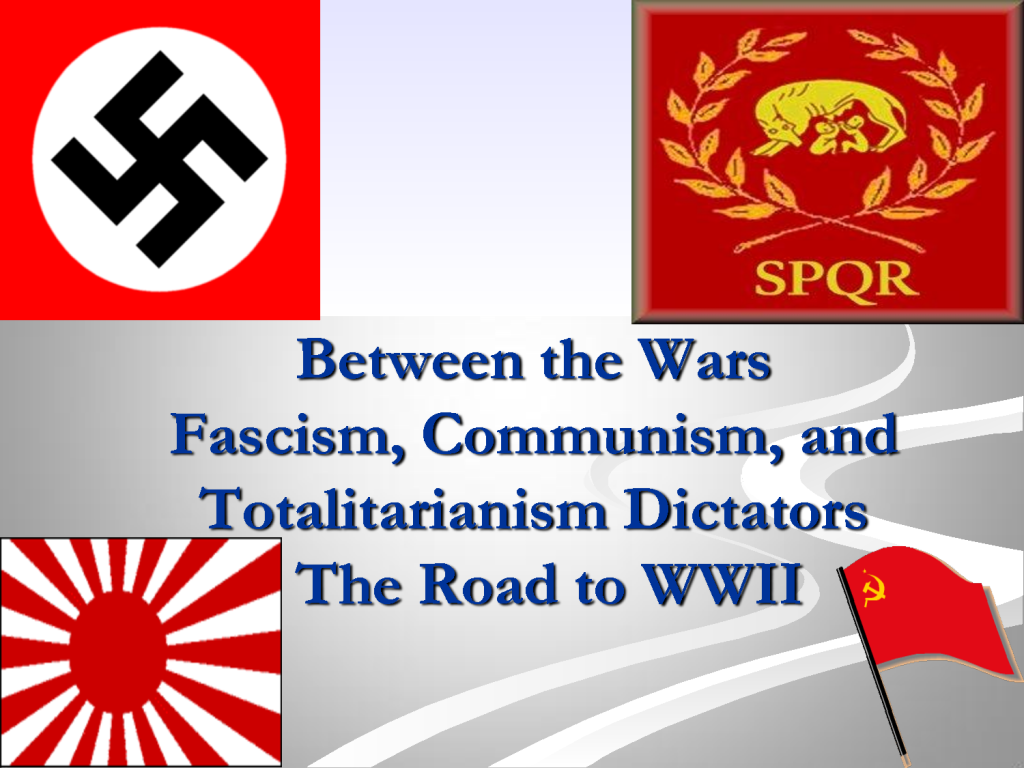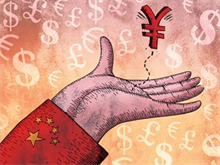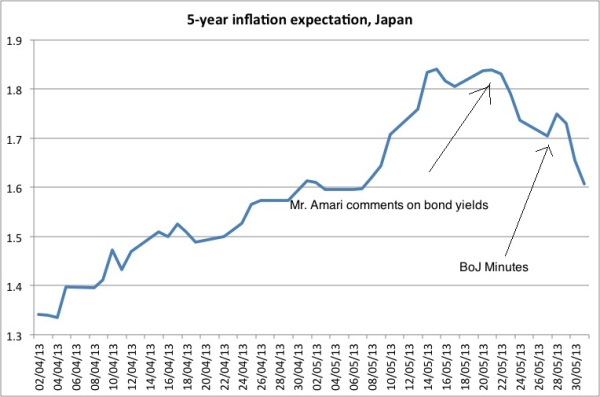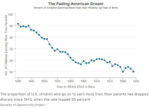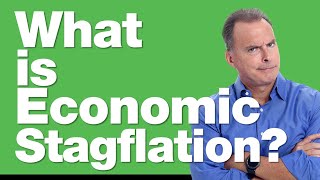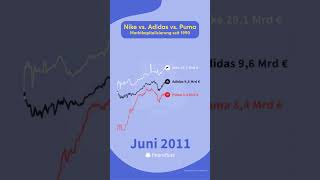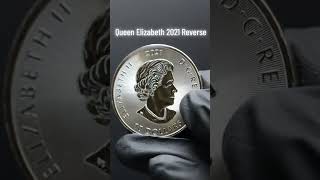Category Archive: 5) Global Macro

Russia, Europe, and the new international order
By Josef Janning – 09 Apr 14 Via the European Council of Foreign Relations. The premise of an international order defined by the West and shared by the rest has been shown to be faulty. Ever since the Soviet Union fell apart and nationalism re-emerged as a divisive as well as cohesive factor in Eastern … Continue reading...
Read More »
Read More »
Krimkonflikt: Über die Gleichschaltung der deutschen Medien
Der Propagandakrieg in Russland, in den USA und insbesondere in Deutschland und auch in der Schweiz geht weiter. Russische Medien trichtern den Menschen ein, dass eine riesige Flüchtlingswelle von Russen aus der Ukraine stattfindet. Deutsche Medien sind gleichgeschaltet: von links (TAZ, Spiegel, Stern) bis rechts (FAZ, n-tv.de und Welt) trichtern sie den Deutschen ein, dass …
Read More »
Read More »
Labor Costs to Total Expenses, Global Comparison
The conflict between labor and capital is a long and illustrious one, and one in which ideology and politics have played a far greater role than simple economics and math.
Read More »
Read More »
Ukraine: About Street-Elected Overthrowers and Democratically Elected Dictators
It only needs a few years until democratically elected presidents become so-called “tyrants” and “dictators”. The bad economic situation in many emerging markets and Russia, and therefore also in Ukraine, has taken its toll. Demonstrators and Ukrainian nationalists toppled a president that has a Russian mother tongue. But Yanukovych was a protector of the country’s …
Read More »
Read More »
Last Week’s Sell-Off: More on the Discrepancy between Developed and Emerging Markets
Last week’s decline in stock markets was probably caused by the HSBC manufacturing PMI for China that contracted for the first time in months, and possibly also by the rapid fall of UK unemployment rates and Bank of England’s response to it. As the rising gold price showed, Fed “tapering fears” were not at the …
Read More »
Read More »
Our March 2013 Analysis: “Volcker Moment Redux”: Upcoming Weakness of Emerging Markets
The 2010 QE2 is a reason why many emerging markets started to slow considerably in the course of 2012. We reckon that this weakness will continue. Bizarrely QE2 helped to reduce global imbalances.
Read More »
Read More »
2013 Posts on Global Macro
What Does It Take To Be Middle Class?
By standards of previous generations, the middle class has been stripmined of income, assets and purchasing power. What does it take to be middle class nowadays? A recent paper, The Distribution of Household Income and the Middle Class, used Census data to discuss what sort of income it takes to qualify as middle class, but reached no firm conclusion: people tend to self-report that they belong to the middle class based on income, but income is not...
Read More »
Read More »
Japan Beats the United States in GDP Growth per Capita for Last Decade
GDP Growth per Capita in Developed Nations in the following order: Australia Sweden Germany Switzerland Netherlands Japan Canada United States France United Kingdom Ireland Spain Italy Greece
Read More »
Read More »
Japan Beats the United States in GDP Growth per Capita for Last Decade
Mainstream economists speak of two Japanese lost decades(s) between 1990 and 2009. Often the United States and the UK are seen as leader in growth. Some statistics might confirm this: When we look on a more subtle criteria, namely GDP growth per capita, available at the world bank, we see a different picture. China and … Continue reading...
Read More »
Read More »
The Great Disinflation Continues, How Wonderful!
Recently investors moved out of bonds in the expectation that inflation will rise soon. But strangely inflation rates have continued to fall. The great disinflation continues.
Read More »
Read More »
Global Purchasing Manager Indices: Europe and China Recover while other Emerging Markets Still Struggle
Emerging markets: Years of strong increases in wages combined with tapering fears have taken its toll: Higher costs and lower investment capital available. EM Companies have issues in coping with developed economies. Some of them even need to shed jobs.
Read More »
Read More »
The U.S. “Oil Trade Deficit” Narrows
The United States trade balance has strengthened to a deficit of only -34.2 bln USD in June 2013. This is nearly half the record-high trade deficit of 62 bln. $ in August 2008 and not too far from record-lows of 26 bln. $ in July 2009, when oil was really cheap. In the first six … Continue reading »
Read More »
Read More »
Abenomics Succeeding? Don’t Believe the Mainstream Media, Just Energy and Import Prices Are Higher
While the FT says: Abenomics is succeeding in bringing inflation back to Japan. The preferred core CPI measure, which excludes volatile food prices, rose a higher-than-anticipated 0.4 per cent in June (year-over-year), the highest reading since November 2008 and the first positive reading since April 2012. (The reading was flat in May). Overall inflation …
Read More »
Read More »
Democracies Like Bubbles, Totalitarian Regimes Hate Them
Totalitarian regimes, like China, fear bubbles and revolutions. Strangely, these regimes help to prevent asset bubbles, and the resulting unequal distribution of wealth between rich asset owners and the poor without assets. Today’s FT article shows how Chinese authorities fear the bubble and the revolution. China cash crunch deepens as PBOC withholds funding Short-term interbank …
Read More »
Read More »
Will the China Bubble Bust? Pros and Cons
Economic experts and even rating agencies remain in dis-accord about the height of Chinese total debt and if this will continue to slow the Chinese economy.
Read More »
Read More »
Has Abenomics Failed? Let us Go for Exchange Rate Targeting and Maintain Stability
Abenomics has failed It was doomed from the very beginning. You cannot create out of risk-averse Japanese risk-tolerating Americans. Public Japanese opinion puts enormous pressure on BoJ policy and on the government; the risks of rising JGB yields are too high. Japanese hate volatility, the government cannot risk its funding. The emphasis on the word …
Read More »
Read More »










